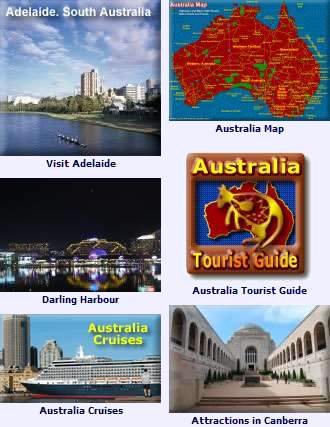Australia Tourist Guide -> New South Wales Tourist Guide -> NSW Outback -> Exploring The Outback - Warnings

New South Wales NSW
New South Wales
Sydney Surrounds
- Blue Mountains
- Central Coast NSW
- Southern Highlands
- Bowral Restaurants NSW
- Hawkesbury Valley Region
- Hunter Valley
- Illawarra NSW
- Macarthur NSW
Central NSW
- Central NSW
- Central Tablelands
- Centre of Central NSW
- North Central NSW
- South Central NSW
- Riverina Region
- NSW Outback
North Coast NSW
Capital Country
Southern Highlands
Snowy Mountains
South Coast
- South Coast NSW
- Islands on the South Coast NSW
- NSW South Coast Tourist Information
- South Coast Places
- Eurobodalla
- Sapphire Coast
- Sapphire Coast Places to Visit
- Shoalhaven, South Coast
- Best Museums in the Surrounds
Popular Attractions
NSW Photos
- Mitchell Library
- Places to Visit
- St Andrews Cathedral
- Barranjoey Lighthouse
- Paddington Markets
- Queen Victoria Building
NSW National Parks
Australian Capital Territory
Greater Sydney Region
Sydney Museums
Australia Tourist Guide -> New South Wales Tourist Guide -> NSW Outback -> Exploring The Outback - Warnings
Mobile Version: Mobile


Exploring The Outback - Warnings
The Outback Weather Far West NSW Weather.
Exploring the Outback
There are dangers and warnings that need to be considered before exploring these landscapes, particularly if your vehicle breaks down. The first and most important - keep calm and focused.
Check to see if your route needs a four wheel drive.
Water
The temperatures and bright sunny days can be dangerous when in the Outback and other wilderness areas in Australia. These vast regions can even prove difficult for experienced guides unless certain precautions are observed.
In the event of vehicle breakdown, it is vital to have adequate supplies of water. Therefore take enough water with you when exploring these areas for every person in the party and take extra water for emergencies.
Also take along appropriate clothing, it may be very hot during the day but desert regions can also be very cold at night.
Not staying adequately hydrated can severly reduce your ability to think clearly.
Mobile phones, although handy can not be relied on as connections can be patchy at the best of times. As well, battery power can also fail at critical times. UHF radios can be very helpful as they can help you communicate more reliably in the remote regions.
If and when you get stuck in the Outback, stay with your vehicle, put your car bonnet (hood) up so people can see there is a problem. If you need to leave your vehicle temporarily, leave markings and a message pointing where you are headed.
Put markings clearly visible by the road to indicate you are in trouble such as a stick triangle. If you can, put a big enough SOS made of sticks and/or rocks for bypassing planes or helicopters.
Informing Local Information Centres
It is important to inform Local Information Centres (including automotive clubs) of your plans to explore remote areas. Inform them of where you plan to go, when you leave and when you plan to arrive. Take any advice they give you about the local conditions and learn as much as possible about surviving in the Outback as possible before setting out. These are only handy hints, aquiring as much knowledge as possible can save your life.
Further Reading
Search the Australia Tourist Guide